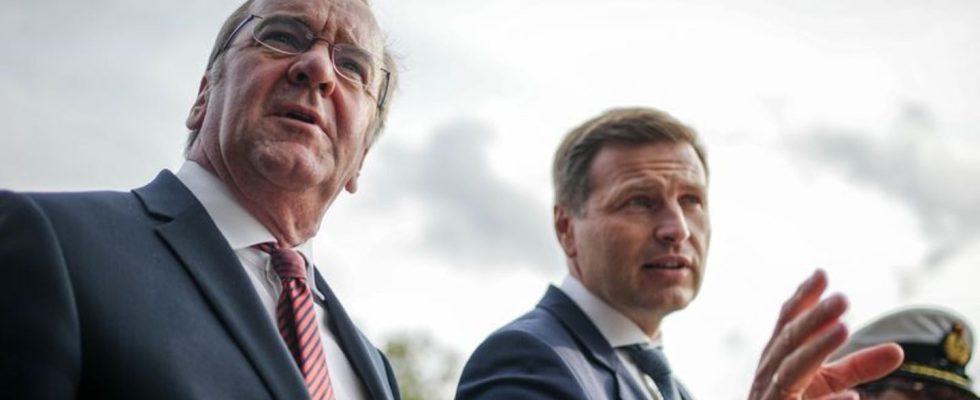Military
Germany and Estonia are expanding military cooperation
Federal Defense Minister Boris Pistorius (l, SPD) with his Estonian counterpart Hanno Pevkur in Tallinn. photo
© Kay Nietfeld/dpa
The Federal Defense Minister’s visit to two Baltic states is about deterring Russian aggression and supporting Ukraine. There is a step forward.
This will allow the industry to increase production capacity, which is “very important for all of us,” Pistorius said. “Ammunition, as we learn every day, is and remains a crucial factor for Ukraine’s resilience,” he emphasized.
Ammunition, anti-aircraft system, field hospitals
Pevkur said new, fresh money needs to be invested in defense to procure more ammunition. “We have to hope that the industry is ready to produce more, and then we can buy more,” he said, also referring to an EU program initiated by Estonia to supply one million artillery shells to Ukraine. So far a total of a quarter of this has been collected.
Germany and Estonia, which borders Russia, had previously expanded their cooperation in the armaments sector. Together with neighboring Latvia, Estonia has agreed to purchase the German Iris-T medium-range air defense system. Pistorius and Pevkur also specifically referred to the field hospitals that were manufactured on a joint initiative and delivered to Ukraine.
The two ministers had previously also visited the Estonian Ämari air force base, which is repeatedly used by the German Air Force as a base for the NATO air surveillance mission over the Baltic states. There, Germany will again take over the “NATO Air Policing Baltic States” with fighter jets and personnel in November.
Security conference in Tallinn
Pistorius will take part in the security conference in the Estonian capital Tallinn tomorrow. It is expected that he will also chart Germany’s future course in security policy. Representatives of the Baltic republics as well as other NATO states and Ukraine take part in the meeting (“Annual Baltic Conference on Defense/ABCD”). The minister’s speech also marks the end of his three-day visit to Latvia and Estonia.
Pevkur said the Estonian government approved the budget for next year on Tuesday, which includes defense spending amounting to 3.2 percent of gross domestic product. The commander of the Estonian land forces, General Veiko-Vello Palm, called for clear and unambiguous language towards Russia on the sidelines of Pistorius’ visit. To do this, the allies would have to draw a red line and combine this with the clear message: “Cross this red line and you will die.”

